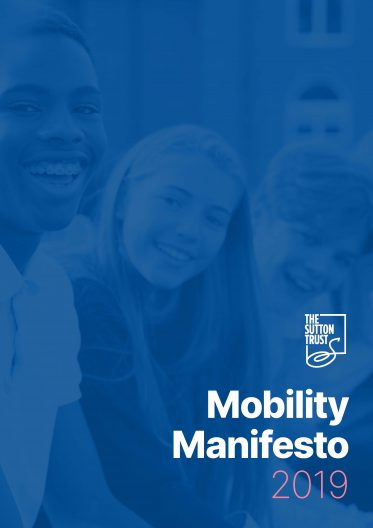Report Overview
The Sutton Trust’s Mobility Manifesto sets an ambitious agenda to put social mobility at the heart of the 2019 election campaign, calling on all political parties to recognise the urgent need to address Britain’s low mobility problem.
It contains wide-ranging policies covering everything from fairer school admissions, to early education and widening access to universities. It also urges a ban on unpaid internships, along with more degree and higher apprenticeships, as well as best practice in widening access in employment.
